Are you an author looking to enhance your work with compelling supporting materials? It can often feel overwhelming to gather the right resources that complement your writing and engage your readers effectively. Whether you need statistics, quotes, or visual aids, crafting a specific request can streamline the process and elevate your project. If you're curious about how to create the perfect letter to secure these essential materials, read on for invaluable tips and templates!
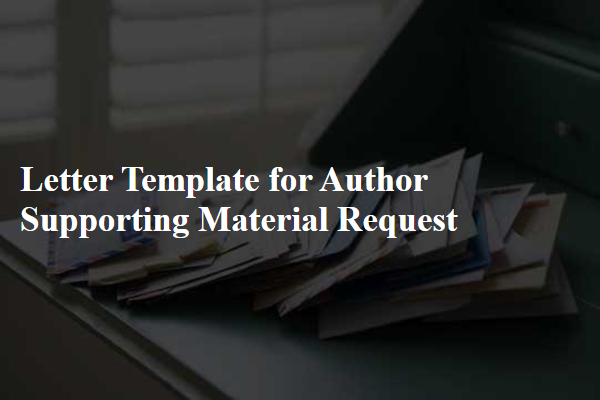
Recipient Information (Name, Title, Institution)
An author supporting material request can involve various specific elements to ensure clarity and professionalism when approaching potential recipients for collaboration or assistance. For instance, having detailed recipient information including their name, title, and the institution they represent is crucial for establishing relevance and credibility. In academia, this might involve reaching out to a university professor known for research in a particular field, such as Dr. Jane Smith, Professor of Biology at Harvard University, recognized for her pioneering studies on genetic modification. Detailing this provides context and emphasizes why the request is pertinent. Additionally, this helps to create a personalized approach, increasing the likelihood of a positive response.
Author Information (Name, Contact Details)
Submitting an author information request is essential for publishing processes, particularly in academic journals. The author's full name, often followed by any relevant titles or degrees (such as Ph.D. or M.D.), is required for proper citation. Contact details, including the author's email address and institutional affiliation (like Stanford University or Harvard Medical School), facilitate communication regarding the manuscript status and revisions. Additionally, including an ORCID ID (Open Researcher and Contributor ID) aids in unique identification of the author in academic databases, ensuring credit is attributed correctly. This information is vital for enhancing visibility and fostering collaboration within the scholarly community.
Clear Purpose Statement
A clear purpose statement is crucial for guiding written communication effectively, especially when requesting supporting material from authors or publishers. In the context of authorship, clarity helps articulate how the requested materials--such as manuscripts, notes, or research--will enhance the understanding or promotion of a specific literary work. For instance, a research paper examining the themes of resistance in Margaret Atwood's "The Handmaid's Tale" may benefit from supplementary materials like interview transcripts or historical context documents dated from the 1980s. Detailed requests serve to inform the author about the specific aspects of their work that necessitate additional context or clarity, ultimately fostering an atmosphere of collaboration and encouraging a more profound engagement with the material. Understanding the precise needs aids in the success of the communication process, ensuring that both the requester and the author remain aligned in their objectives.
Specific Details of Requested Material
Authors often seek specific materials to enhance their research and publications, including access to historical manuscripts from institutions such as the British Library or the Library of Congress. Researchers may request primary sources, such as letters or diaries, dating back to the 18th century that provide insights into cultural or social dynamics during events like the American Revolution. Specialized databases, such as JSTOR or PubMed, can also be crucial, offering peer-reviewed articles that support scientific claims. Acquiring these resources may involve navigating academic institutional subscriptions or requesting digitized content directly from archivists, ensuring thorough understanding and accurate representation in their work.
Gratitude and Anticipated Response
An author supports a material request with gratitude and anticipation for a response. Acknowledgment of prior assistance, highlighted contributions to the project's success, underlines the importance of the requested materials. Specific items, such as research data or manuscript reviews, may enhance the work's overall quality. Timely feedback is appreciated, considering upcoming deadlines for publication submissions, conferences, or grant applications. Clear communication fosters collaboration, ultimately benefiting all parties involved in the endeavor.
Letter Template For Author Supporting Material Request Samples
Letter template of author requesting supporting materials for article submission
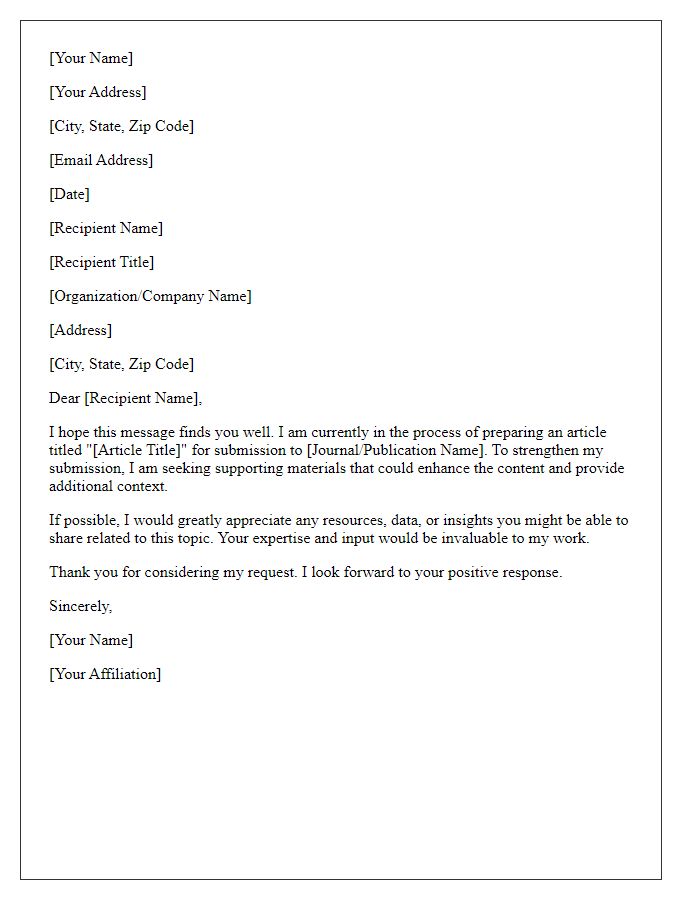
Letter template of author seeking supplementary documentation for research paper
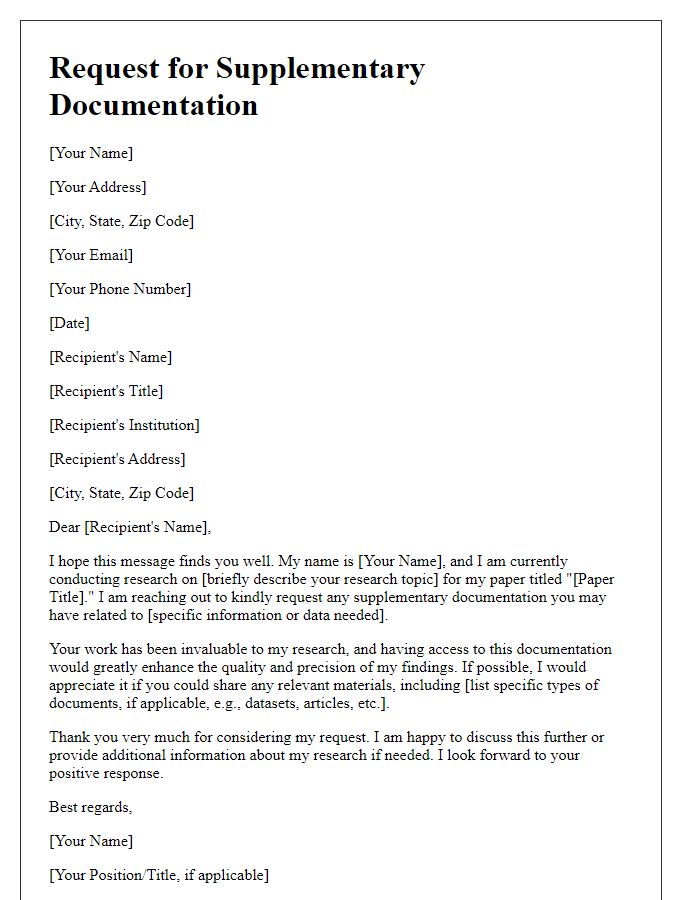
Letter template of author asking for additional resources for manuscript development
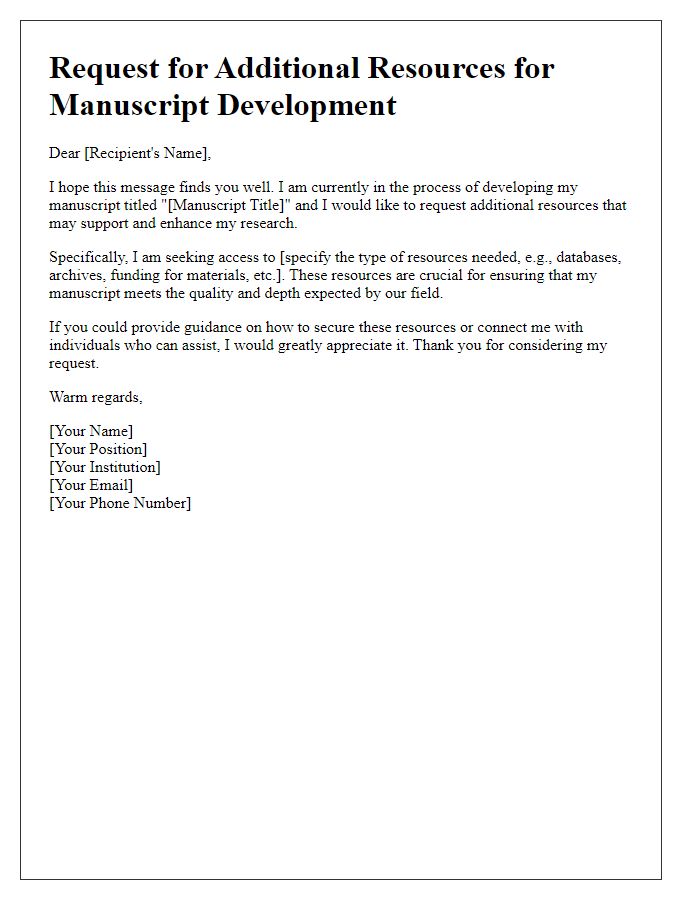
Letter template of author inquiring about supporting documents for book project
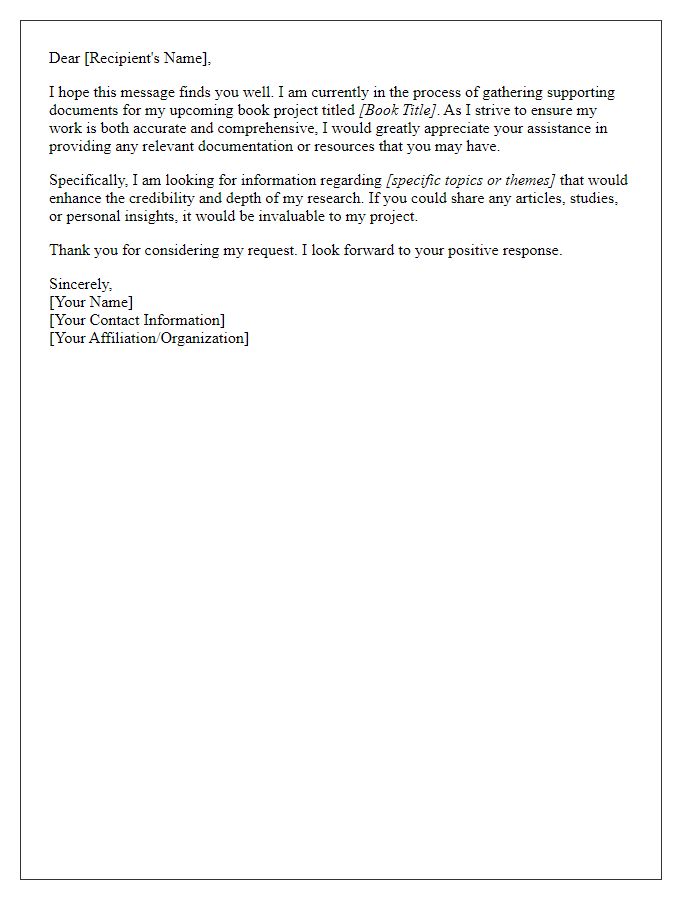
Letter template of author requesting research materials for academic publication
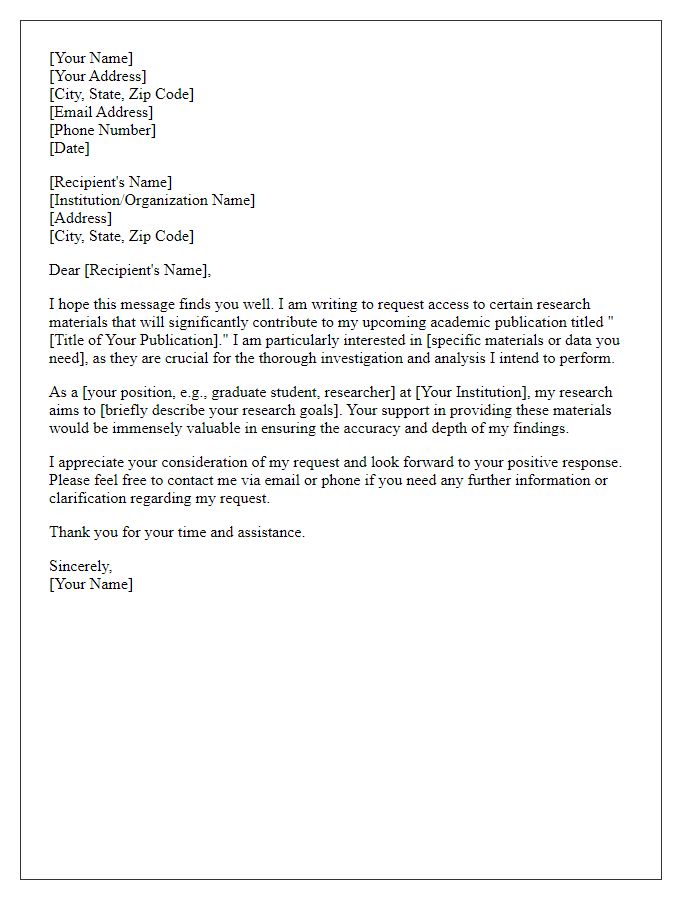
Letter template of author appealing for data sets to enhance article quality
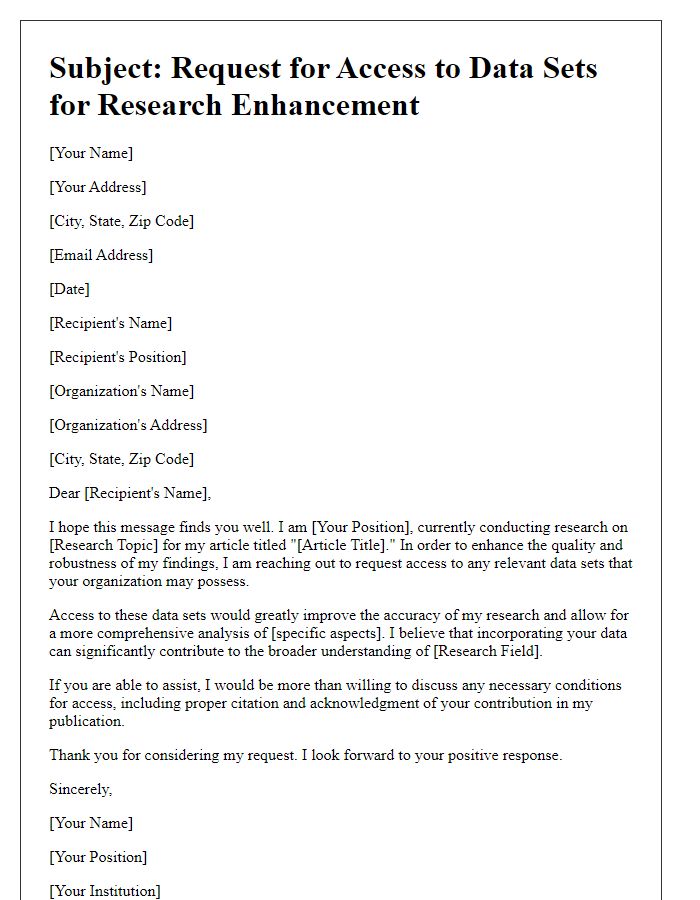
Letter template of author soliciting references and citations for writing support
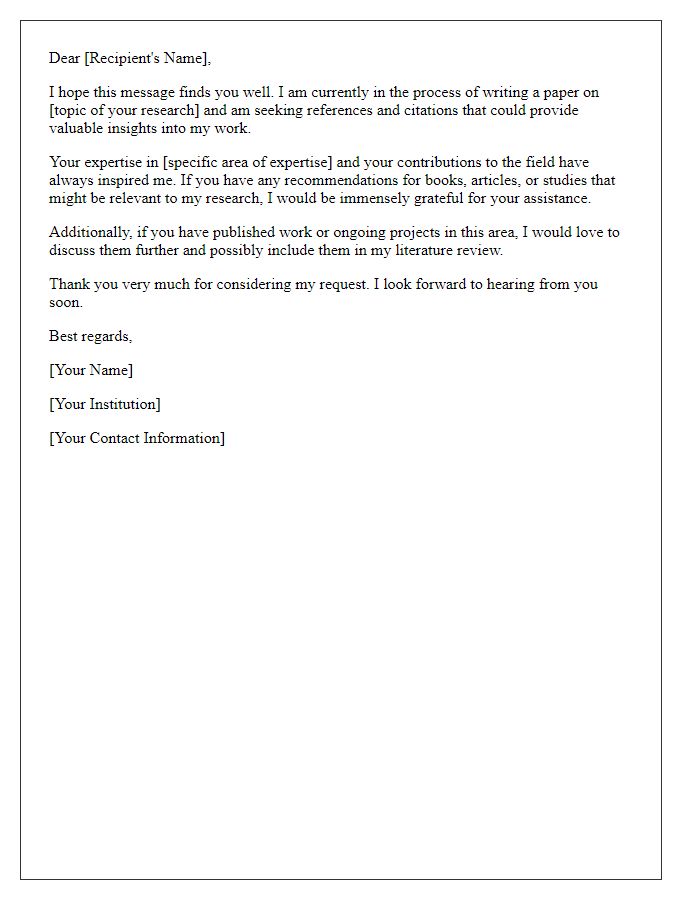
Letter template of author looking for funding resources for project assistance
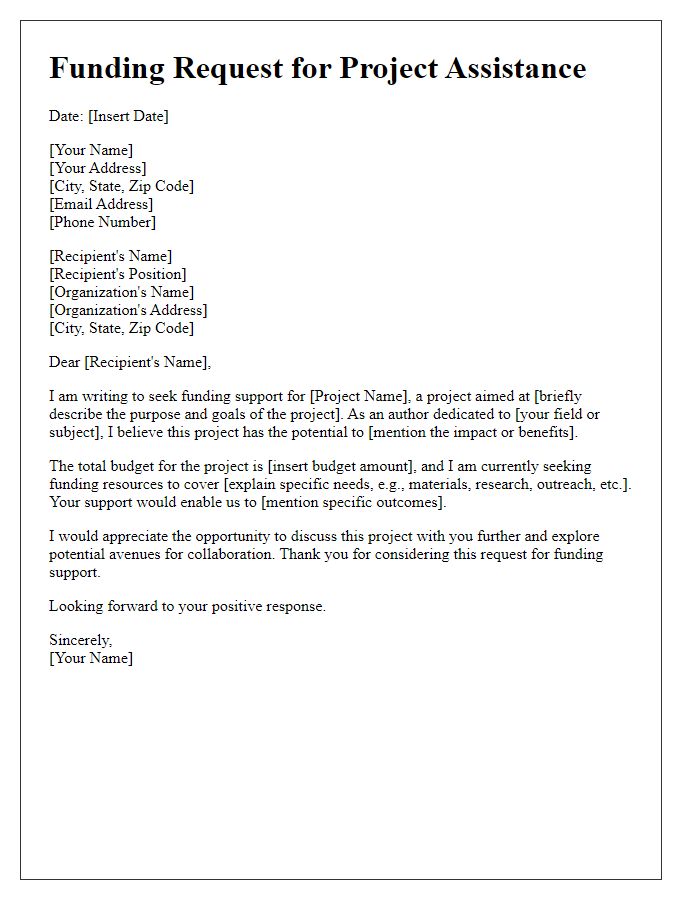
Letter template of author seeking collaboration for additional research insights
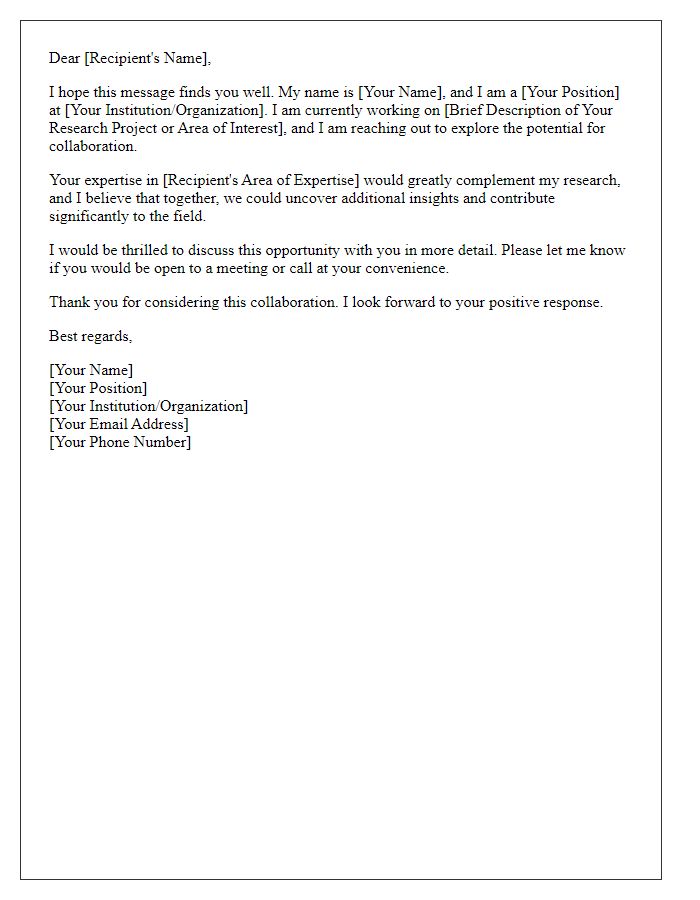

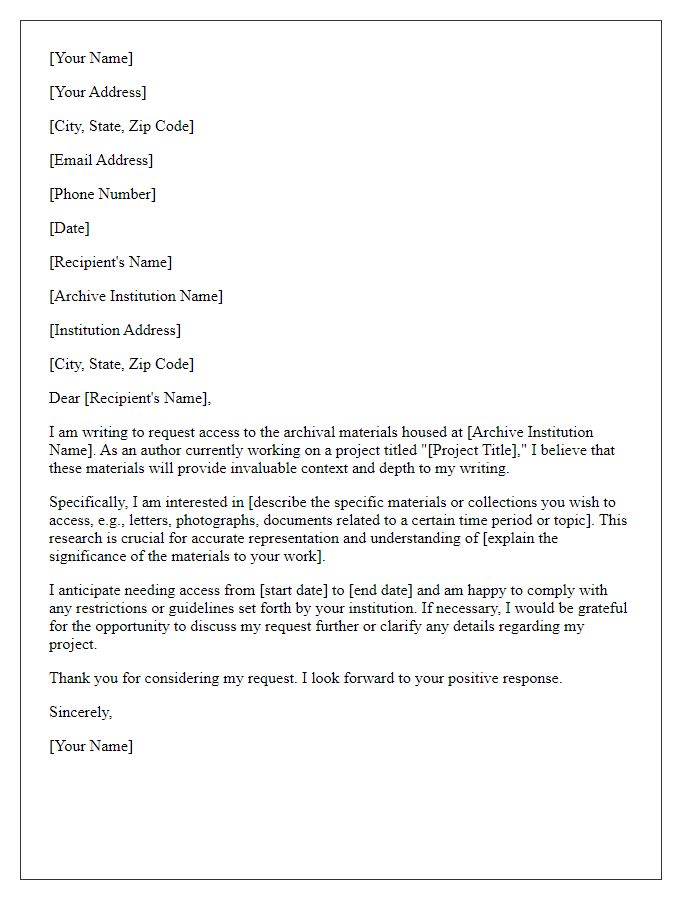

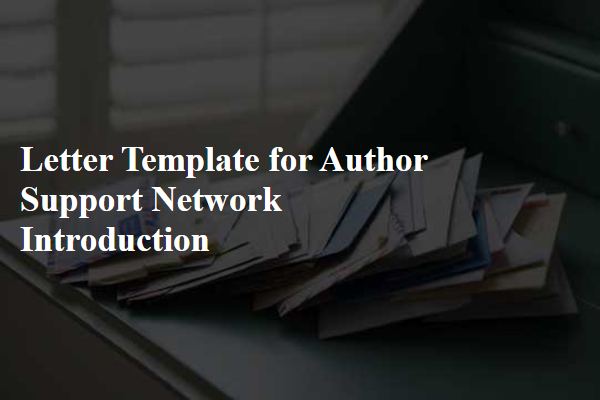
Comments